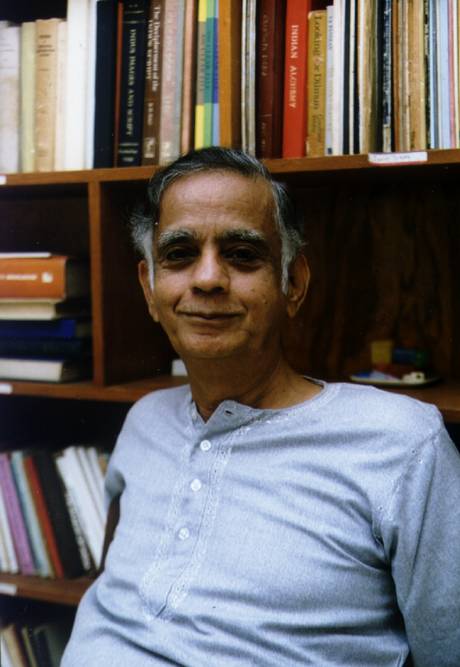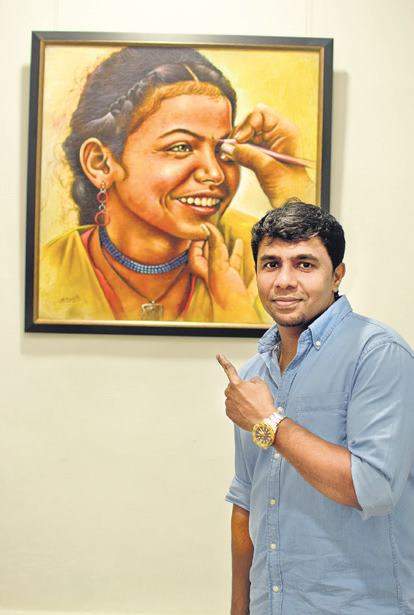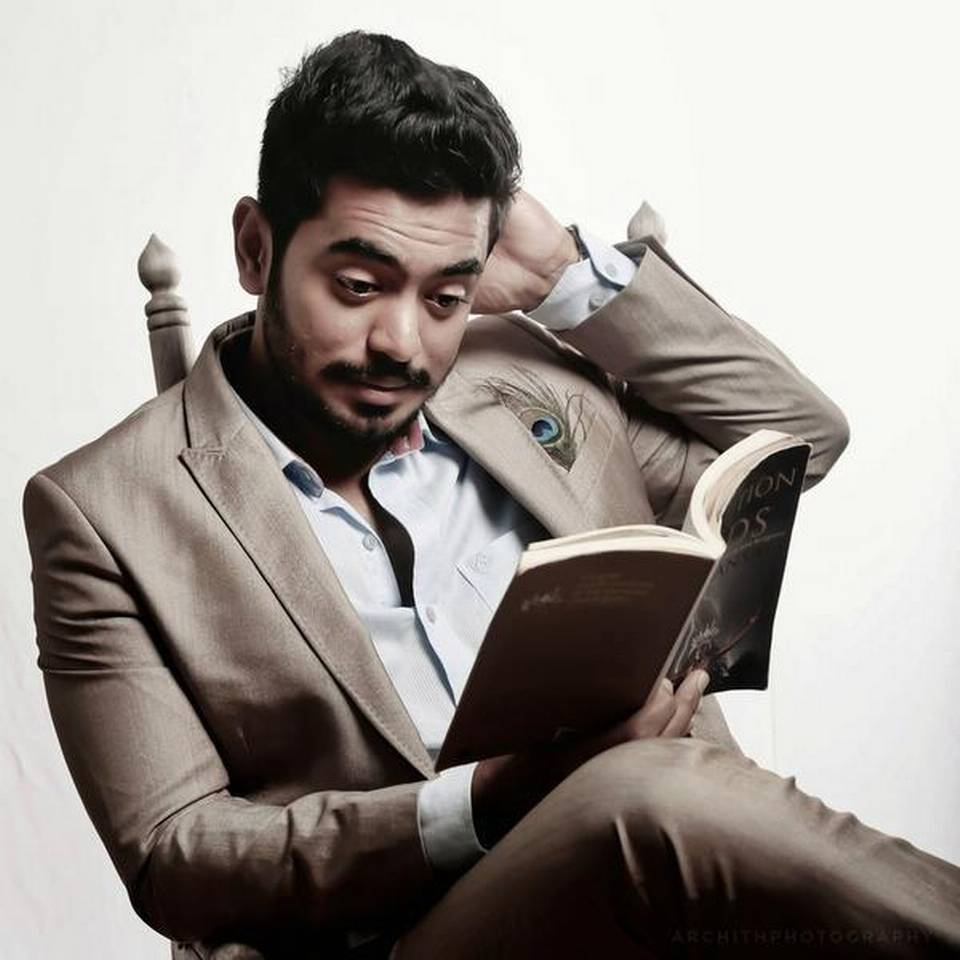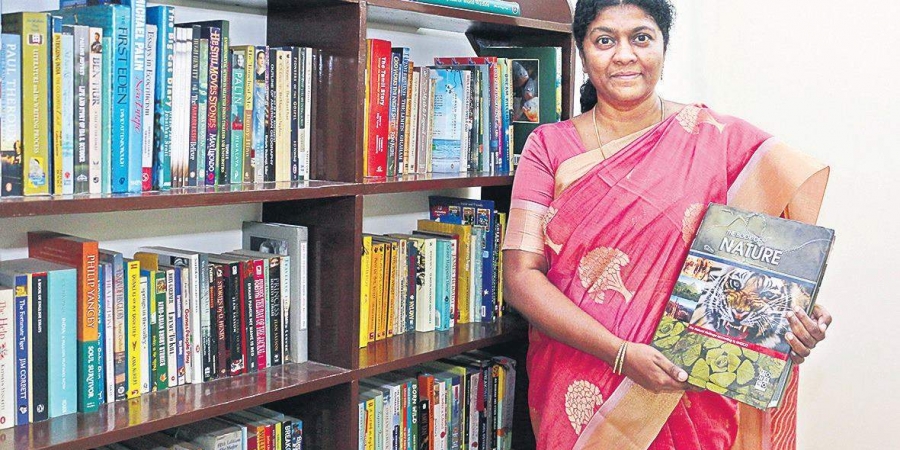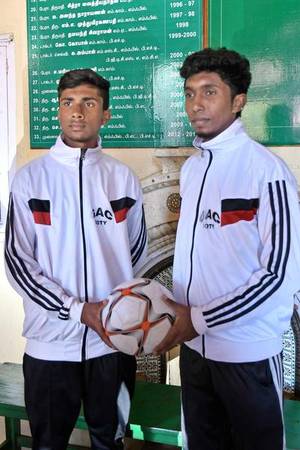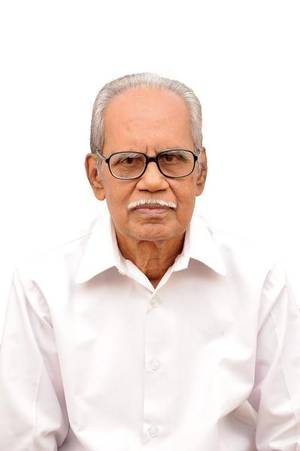Most primary schools in the State are run by local bodies. There are only 27 primary schools, including three in Erode district, directly under the government.
Erode :
A government primary school on Periyar Street here is perhaps the only one of its kind in the State: it is entirely English medium as parents want to enrol their children only in these classes. English medium classes were opened here eight years ago when the late Chief Minister Jayalalithaa allowed their parallel sections from the first standard. Since then, the demand has increased and gradually, it became a fully English medium.
The school, established 158 years ago, used to be the primary section of the Government Girls Higher Secondary School at PS Park, Erode. In 2001, it was made a separate school with a separate head. Most primary schools in the State are run by local bodies. In fact, there are only 27 primary schools, including three in Erode district, directly under the government. Of the three in the district, two are in the city and one in Bhavanisagar.
When the present headmaster, V S Muthuramasamy, took charge, its strength was 72, but now there are 310 students, more than 200 of them being girls. It has 10 teachers, all of whom are postgraduates; three of them, including the headmaster, have an MPhil degree. However, Plus Two with DTEd is the basic qualification for teachers of primary schools.
All classes from the first to the fifth standard have two sections, each with 25-30 students. So, the school has just enough number of teachers.
Good infrastructure
The school now has enough infrastructure, like any private school, to attract parents. Earlier, when it did not have enough of them, former MLA of Erode East, V C Chandrakumar (2011-16), granted Rs 33.50 lakh from his MLA fund to construct a new, well-furnished three-classroom building in place of the old tiled building. The present MLA, K S Thennarasu granted Rs 10 lakh to lay a proper floor and dig a new borewell.
The RMSA office in the school was shifted to the CEO’s Office and the building is now used to conduct classes. Using SSA and panchayat union funds, eight toilets and a noon-meal centre were constructed recently; a bicycle parking space was also created.
Erode West MLA K V Ramalingam, during a recent visit, agreed to help construct a compound wall with a good gate. With donations from the public, walls of all classrooms, both inside and outside, were painted with pictures of leaders, scientists, birds, animals, flowers, trees, alphabets, etc, to encourage children to learn about them. Also, panels with Tirukkurals written on them have been hung in the buildings.
English medium in govt schools will not harm Tamil
ERODE: “ALL parents want to put their kids in English medium classes. I can’t force them to enrol the children in Tamil medium. If I try to do that, they will go to other schools. And rules say admission
should not be refused to any child. Through parents’ choice, all classes here are now English medium. There is no Tamil medium class,” V S Muthuramsasmy, headmaster of the Government Primary School on Periyar Street in the city told Express.
“Having only English medium classes in the school is not wrong,” said Muthuramsasmy, who is also district secretary of the Tamil Nadu Aarambapalli Aasiriyar Koottani. “Parents are clamouring to see their children speak English. They send them to private schools, unmindful of the hefty fees, for it. If the government itself provides good English medium education, they will not spend so much money on private schools. In fact, only if this demand is met will the strength of government schools increase,” he added.
Opening LKG and UKG sections in all government schools will not affect Tamil, he said. All students have to learn Tamil as the first language. Besides, many in Tamil medium students who score high marks in Plus Two find higher studies, all of which is in English medium, difficult. A student learning in English from the primary level will find higher education easier.
As all the teachers here are postgraduates, there is no difficulty in conducting classes in English. The English reading and writing skills the school’s students are very good, said, teachers. Hearing some students – Saranya and Saravanan of the fourth standard and Dhanushka and Merlin of the fifth – read lessons from their English texts and explain the meaning in Tamil clearly, proved their claims. The books in English for other subjects were also easy.
In fact, the students find the Tamil textbooks harder. “Spoken English classes are conducted using CDs. So the children learn the pronunciation easily,” said Umamaheswari, a teacher. “The school also arranges free classes for karate and music. The teachers are paid from the school fund. ID cards and diaries also are given free of cost to all students. As private schools collect Rs 20-40,000 for the same education at the primary level, many parents prefer this school.
It is the main reason that our strength is growing every year. Our aim is to make the school first in the State in all aspects in the coming years,” she added. Attracted by the good high quality of education in this school, many parents pulled their children out of private schools and put them here. In fact, admissions in the nearby corporation, and even private, schools have come down because of this.
source: http://www.newindianexpress.com / The New Indian Express / Home> States> Tamil Nadu / by Express News Service / November 20th, 2018
